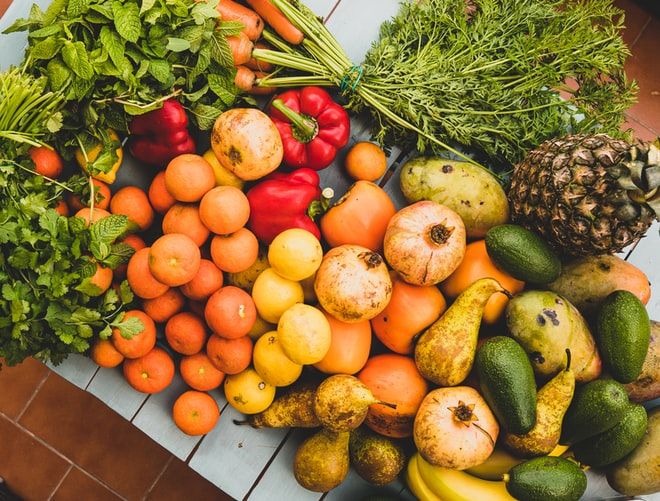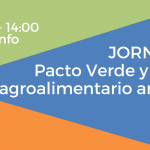Today, the Commission, alongside industry stakeholders, officially launched the EU Code of Conduct on Responsible Food Business and Marketing Practices, another deliverable under the Commission’s Farm to Fork Strategy.
This Code is an essential part of the EU’s efforts to increase the availability and affordability of healthy and sustainable food options that help reduce our overall environmental footprint. It has been developed with EU associations and companies, with active involvement and input from other stakeholders, including international organizations, NGOs, trade unions and trade associations, and together with the European Commission services. Associations and companies in the food sector that sign the code commit to accelerate their contribution to a sustainable transition. With their pledges, they endorse the objectives set out in the Code and encourage similar companies to also participate.
Two levels of commitments are included in the scheme:
- EU associations: set of seven objectives, each with its targets and indicative actions. These relate to actions that promote the shift towards healthy and sustainable consumption patterns. The objective is to improve the impact of food processing, retail and food services’ operations on sustainability and to improve the sustainability of the food value chains, in relation to primary producers and other actors in the chain. Associations should report on progress on a yearly basis.
- Companies: framework for frontrunners for ambitious commitments with measurable outcomes covering a wide range of areas, from animal welfare, to sugar reduction and cutting greenhouse gas emissions in their full product range. Companies will report progress by submitting a summary of their sustainability report on an annual basis.
On the day of the launch of the Code, 65 signatories (26 food manufacturers, 14 food retailers, 1 from the food service sector, 24 associations) become the first pioneering companies and associations (link to full list of signatories).
More EU associations and companies in the food sector are invited to join the Code of Conduct which is perceived to be a game-changing solution. Its multi-stakeholder dialogue approach may serve as a model for global transformation.
The Code marks the beginning of a dynamic process. The governance of the Code puts in place the tools for collaboration among all actors concerned in order to generate new and more ambitious commitments, partnerships, and stimulate interaction and exchange.
The Commission intends to present the Code in the United Nations’ Food Systems Summit later this year.
Members of the College said:
Executive Vice-President Timmermans said: “We need to make our food system sustainable and we need to do it soon. We must reduce greenhouse gas emissions and halt biodiversity loss related to food production, and shape a food system that makes it easier to choose a healthy and sustainable diet. Addressing these environmental, health, and social challenges in our food system require cooperation across the entire food chain and I am encouraged by ambitions of the stakeholders who have already signed up to the EU Code of Conduct.”
Stella Kyriakides, Commissioner for Health and Food Safety, said: “Today we are marking one of the first deliverables in our work under the Farm to Fork Strategy towards a healthy and environmentally-friendly food system. Close cooperation between all actors is essential to achieve a successful transition to sustainable food systems. The EU Code of Conduct will facilitate this cooperation, building on the commitments the food industry has already made and encouraging more ambitious action. The European food industry is already known for the quality and safety of its products. It should now also become the golden standard for sustainability.”
Thierry Breton, Commissioner for the Internal Market, said: “The EU Code of Conduct on responsible food business and marketing practices is a considerable step forward made by the agri-food ecosystem. Every voluntary commitment counts to achieve the sustainable transition of our food systems, while increasing their resilience. The Commission is committed to mobilising its support instruments, in particular for SMEs, the backbone of the agri-food ecosystem, as we are embarking on this ambitious journey.”
Virginijus Sinkevičius, Commissioner for Environment, Oceans and Fisheries said: “Forward-looking food companies know that healthy soils and ecosystems are essential for the resilience of our food systems, and for their business. Sustainable food systems are also crucial to meet our climate and environmental goals, such as putting European and global biodiversity on a path to recovery. I am therefore delighted that, through this Code, the food industry is taking a decisive step towards a sustainable future for their business and for our planet.”
Background
On 26 January 2021, the Commission facilitated discussions amongst a wide variety of stakeholders in the food sector to design an EU Code of Conduct on responsible business and marketing practices as one of the first initiatives to be delivered under the Farm to Fork Strategy.
The Farm to Fork Strategy is an integral part of the European Green Deal. It sets out a long-term strategic vision to transform the way we produce, distribute and consume food. The Code covers all major aspects of food systems’ sustainability and reflects the goals and ambitions of the Farm to Fork Strategy and the European Green Deal.
The Commission steers several voluntary initiatives in place or in the pipeline to support the green transition, aiming to ensure that sustainable products are available to consumers on the EU market and that consumers have better information to be able to make informed choices. Taking into account the key role actors in the middle of the food chain – food manufacturers, food retail, and food service – play both upstream and downstream, it is essential to complement legislative proposals with voluntary, non-regulatory initiatives addressed to pioneers in the industry that are keen to support the green transition. As set out in the Farm to Fork Strategy, the Commission will monitor the commitments and consider legislative measures if progress is insufficient.
Other such non-regulatory initiatives include:
Green Consumption Pledge Initiative | European Commission (europa.eu)
Retail Forum for Sustainability (now taken up in the Circular Economy Action Plan)
The EU Green Digital Coalition
The EU Climate Neutral Data Centre Pact







Leave a Reply